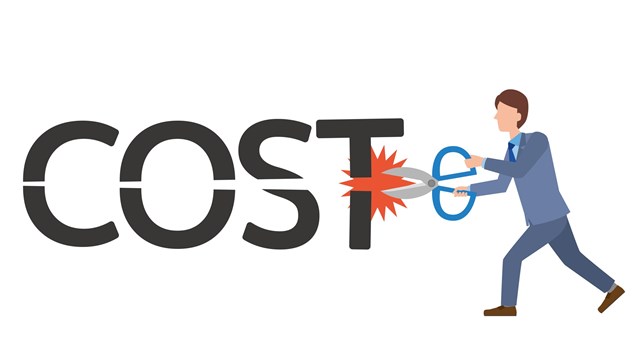
From attorneys to contractors, every building and HOA has a list of various professionals to work with to keep things running smoothly. One of the most important of these professionals is the building’s accountant. One wrong calculation or missing component in a community’s finances can lead to angry residents, cash flow problems, even lawsuits. As a manager, it’s important to know how to find a competent person to crunch those numbers, what expectations you can hold for him or her, and how to get the most of your relationship.
Why Have An Accountant?
The short answer? Because it’s legally required. Audits are used to compose tax and budget statements that are sent to shareholders and unit owners so that they know where their money is going. In the case of co-op communities, accountants file corporate tax returns on behalf of the cooperative corporation, and condo associations typically file their own returns as well..
"Most association governing documents require an annual audit,” says Edward Guttenplan of Wilkin & Guttenplan P.C. in East Brunswick. “Mortgage lenders also generally expect an association to have one. For the purposes of the audit, associations should always have an outside accountant who brings independence and enhanced assurance to the reliability of the information. The right professional also brings with them considerable knowledge about the industry, trends and best practices. Of course, the downside is that there’s a cost to having an outside accounting firm involved."
According to Karen Sackstein, a CPA based in Fair Lawn, smaller buildings sometimes do their own numbers. For example, a 10-unit condo can usually handle its own finances—particularly if one of the volunteers on the board has expertise in finance. With a bigger community however, keeping the books in-house is impractical, and can lead to more problems than it solves if irregularities arise.
Sackstein adds that most New Jersey condominium communities are organized as non-profit corporations, “under NJ Title Section 15A.” Even if your association has not generated any income and owes no money to the IRS, it’s required to file a federal tax form each year. And though a great many condominium associations are run as not-for-profit entities, associations are considered corporations from the viewpoint of the IRS.
"Most associations utilize the services of a management company to handle their financial and operational issues on a day to day basis," Sackstein says. "While some small associations can effectively self-manage, most are better served by a management company. Accounting firms typically do not provide day to day bookkeeping services such as billing and collection of maintenance fees as this would not be cost effective. In addition, if an accounting firm provides bookkeeping services, they would in fact not be independent and could therefore not provide audit services to the association."
And according to Richard Montanye, CPA at the accounting firm of Marin & Montanye LLP in Long Island, even when buildings aren’t required by their bylaws to distribute audit statements to their shareholders, some banks are now requiring such documentation for their records.
“It would not be wise to have a manager handle these issues,” says Montanye, “because it’s a fairly specialized area, and experience is required to handle required filings and financial statements properly. Remember, the cooperative or condominium is collecting maintenance or common charges from the unit owners, so it's important that the funds be spent properly and records be kept of all income and expenses…it’s necessary that the records of the managing agent be checked for accuracy and to make sure the finances of the building are being handled properly.”
Most pros agree that without accountants, condos and co-ops run the risk of missing tax benefits for buildings and units. If paperwork is filled out incorrectly, there’s also a chance for a fine.
What’s Your Role?
While accountants are the experts in the field, everybody has a part to play for things to run smoothly. It all starts with the the property managers. It’s their job to provide accurate and timely financial planning. They produce budget assumptions and are able to explain the differences between the actual money spent and the budget.
The board is involved as well of course, but to varying degrees depending on the HOA and its particular financial needs, says Sackstein. "Interaction between the accountant and the board of directors varies from client to client. Typically the manager will attend all monthly board meetings and the accountant will attend when necessary. We do stay connected to our boards and managers throughout the year via e-mail and telephone. We are always available to consult on financial and operational matters as they arise."
Treasurers then act as a watchdog of the manager and are the liaisons between the CPA and the property manager. They have a basic knowledge of financial statements and review all the documents. They keep records of all the bills and are responsible for also keeping the board up to speed on where the money goes. Managers and treasurers do the day-to-day financials and the CPA audits them—but that CPA can’t make the boards' decisions for them—they can only give opinions which the board may accept or reject.
According to Guttenplan, "Typical services include audits, tax return preparation, management letters and meetings with the board to review the financial statements. Other services that might be provided are transition audits or procedures, budget preparation, ballot counting, board training or consulting on various financial matters."
It’s often helpful to have an experienced accountant at an open meeting of the residents when the board is trying to explain a complex situation such as a special assessment, a large increase in fees or transition from the developer," Guttenplan continues. "The accountant can bring broad industry perspectives as well, providing background and context comparative to the proposed actions."
The professionals do admit that many boards will push the boundaries of what an accountant’s duties are, citing that board members are volunteers. Again, some of them may have more knowledge in certain areas, but most of the time they are not trained professionals. People aren’t compensated for their volunteering, and consequently they rely heavily on their CPA.
One accountant cites instances where the property manager called him for advice regarding refinancing and information on disability tax credits for individual shareholders. “There’s certain stuff I do out of courtesy,” he says. “It’s always been my policy to help them out throughout the year. I want to make sure everything is on the up and up.”
There are some functions that accountants cannot help their buildings with, however.
“We don’t do books and records. That’s up to the management company,” says Mindy Eisenberg Stark, CPA, CFE. “An accountant can’t keep books and audit because it’s a conflict of interest.” She adds that while accountants are only required to go to annual budget meetings, they will go to board meetings if there’s a special circumstance.
In light of the sometimes-gray area around what accountants can and cannot (and should and should not) do, the pros agree that it’s important that you document with your accountant the expectations of the work they’ll do so there won’t be any miscommunication down the line.
How to Find An Accountant
Because the co-op and condo industry is so specific, it’s imperative to find an accounting professional who knows all the ins and outs of the game.
"Experience is the number one criteria for selection of an accounting firm," says Sackstein. "The common interest realty field is a unique specialty with complex accounting and tax issues. Just as you would go to a specialist when selecting a physician, the association should seek a professional with expertise in the CIRA field. The board of directors should perform due diligence in selection of all professionals including fully checking references."
"Boards and their managers should always look for a firm or accountant that is knowledgeable about the industry and participates in the local trade organizations and tradeshows,” says Guttenplan. "Someone who has connections with other professionals in the industry. They should make sure that the firm has adequate staffing levels to handle the type of work. Also, they should pay attention to the resources that the accountant or firm brings to the table such as education, website resources published information, value added services and proactive communications with the association and board."
Another way to locate and get a sense of an accountant is with a peer review. Peer reviews are done every three years. The auditors get audited and are issued a letter. It's certainly better than simply flipping open the Yellow Pages and calling the first person you see listed under 'Accountants.' Additionally, a good CPA will have professional liability insurance just in case something goes wrong.
After a manager finds someone they’re interested in, the professionals concur that they should ask for a written proposal followed by a professional interview. That way, everybody’s expectations are laid out on the table.
Other things to consider are what special qualifications a CPA has in addition to simple accounting. Stark, for example, cites her position as a Certified Fraud Examiner (CFE). That accreditation can help a lot if there are questions about board members or management committing fraud or other financial malfeasance.
Show Me The Money
“Most accountants work on a flat fee basis that includes most items a cooperative or condominium would need on a regular basis,” says Montanye. “Special projects or tax audits would be special items normally billed on an hourly basis.” Fees also depend on the management and financial structure of the building.
Firms can also do billing on a monthly or quarterly basis, depending on their system and depending on the comfort of the condo or co-op. There is usually a fixed fee cap unless extraordinary issues occur.
The range for fees varies broadly, depending on the size of the complex, whether there are any parking garages and gardens, or if there is any commercial retail space attached to the buildings. A 32-building complex will obviously have more going on financially than a six-unit one.
“An average building may pay $8,000 to $15,000 per year,” says Montanye. “However simple small buildings may be substantially less where larger buildings would pay more.”
Fees can be based on the firm’s structure. Sole practitioners are on the lower end of the spectrum where bigger firms that specialize in condo and co-op finances charge more, he says. However, with sole practitioners you lose out on quality as there could be only one person looking over everything and they may not have as much industry experience by comparison.
Keeping The Ball Rolling
The most important thing to remember is to keep an open line of communication between all involved parties. Everybody needs to be in the know.
“In my opinion communication is key to the proper relationship with an accountant,” says Montanye. “The building should feel free to communicate with the accountant for any item,” along with seeking the advice of the property manager and other professionals, he says. “Board members are volunteers and should be able to rely on all of their professionals for advice.”
Bernadette Marciniak is a freelance writer and a frequent contributor to The New Jersey Cooperator.






Comments
Leave a Comment